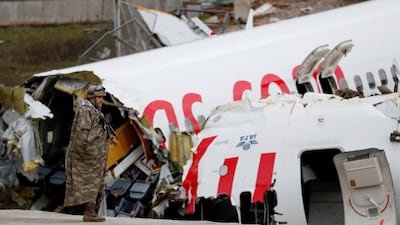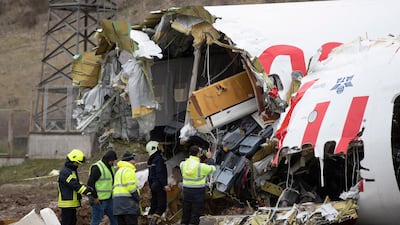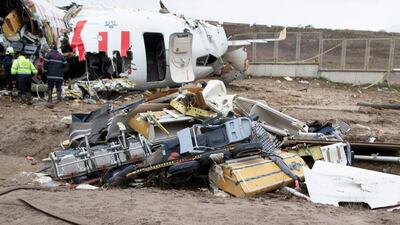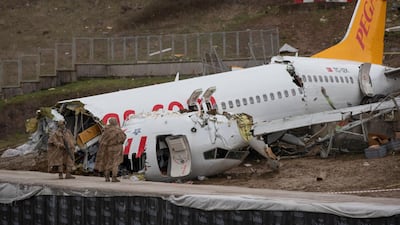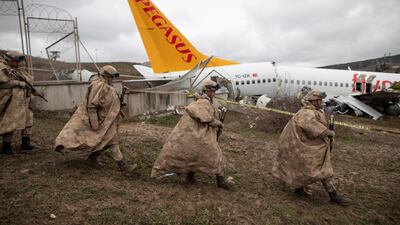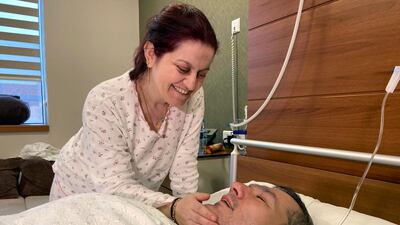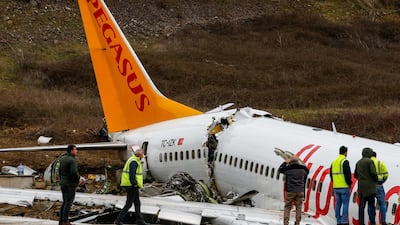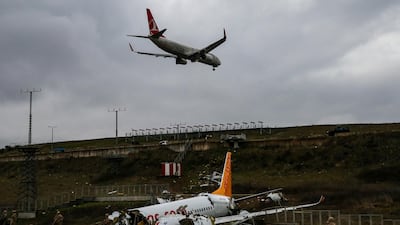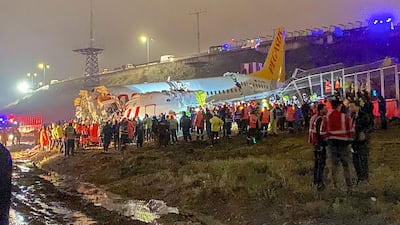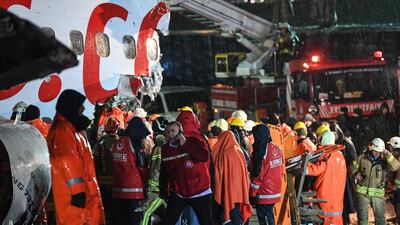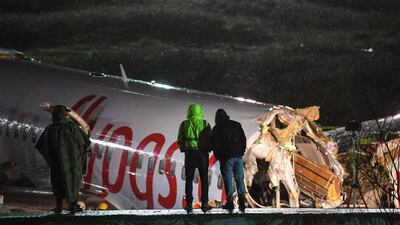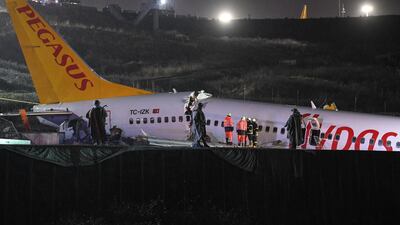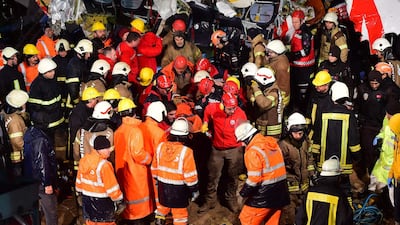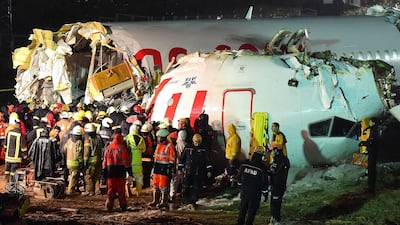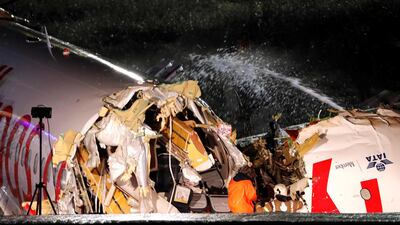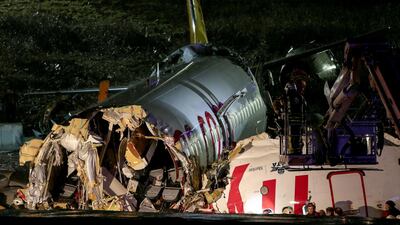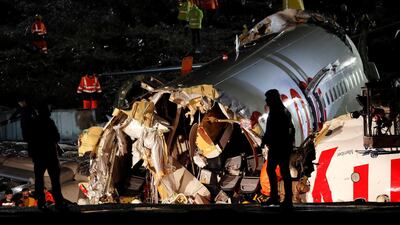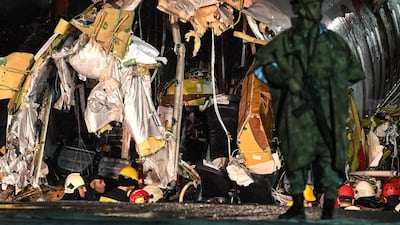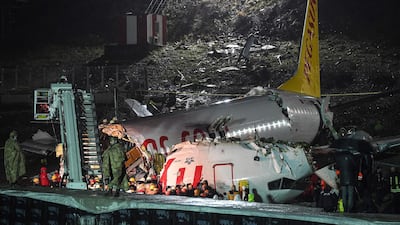The Istanbul plane crash that left three people dead could have been a much greater disaster that killed everyone on board, a leading aviation expert said on Thursday.
The Pegasus Airlines Boeing 737 skidded off the runway at Sabiha Gokcen airport on Wednesday evening, breaking apart and plunging into a ditch while landing in bad weather.
As well as the three fatalities, all the remaining 174 passengers and six crew were injured in the crash, which left the plane split into three sections.
“Many more people could have died, this was a very close call,” said Haluk Kul, an aircraft engineer and faculty member at Istanbul’s Gelsim University.
“We are very lucky there wasn’t a massive fire because there was such a high amount of force coming in. Everyone on board could have died.”
He added: “The fuel tank could have exploded. It was a horrible accident but it was a very close call.”
Initial reports focused on high winds and heavy rain as the 11-year-old plane landed at around 6.20pm local time following a one-hour flight from Izmir in western Turkey.
According to Turkish media, two earlier Turkish Airlines flights made a pass around during their landing approach because of tail winds gusting at more than 60 kilometres per hour.
Surface water on the runway could also have been a factor, Mr Kul said.
“When a plane lands you need friction for the plane to stop. When you’re going 250 to 270 kph and there’s a lot of rain, that can reduce friction significantly and prevent the plane from slowing. If there’s a lot of rain you need to land harder to create friction and stop.”
David Kaminski-Morrow, air transport editor at FlightGlobal, highlighted that strong west winds were coming from behind the flight as it landed.
“Normally aircraft would land into a strong wind to reduce the risk of landing too fast and too long, that is, further down the runway and at a higher speed than intended, both of which can increase the risk of an overrun,” he said.
However, he pointed out that there are usually several contributing factors in air accidents.
The disaster is the third landing accident involved Pegasus planes in Turkey in the past two years.
Last month a flight from Sharjah skidded off the runway as it landed at Sabiha Gokcen. None of the 164 passengers or crew were injured.
In January 2018, a Boeing 737 carrying 168 people slid off a runway at Trabzon, north-east Turkey. Nobody was injured.
An investigation has been launched by a public prosecutor that will seek the blood samples and mobile phone records of the two pilots, who are reportedly in critical condition. Such requirements are normal in fatal accidents.
The prosecutor will also examine camera footage of the crash, recordings of the communication between the aircraft and the control tower as well as data from the plane’s flight recorder.
In a news conference on Thursday, Pegasus chief executive Mehmet Nane said the company’s pilots were warned to pass by if there was a risk during landing.
Close to tears, he added: “Such events occur not just for one reason but by many factors coming together. Therefore, no one should doubt that we will deliver any developments and improvements that come out of the accident investigation process.”
Mr Nane said 56 of the injured had been released form hospital. The Istanbul governor Ali Yerlikaya said four people had serious injuries.
Passengers described the panic as the aircraft slid off the runway and down a 30-metre ditch, breaking up in the process and leaving the front section, including the cockpit, upside down.
“After the wheels touched the ground, the announcement ‘Welcome to Istanbul’ was made,” the
Cumhuriyet newspaper reported passenger Alper Kulu as saying from hospital, where he was being treated for a broken arm and fractured cheekbone.
“The plane suddenly started shaking. I felt it slide to the left and we fell into a 30-40 metre hole. The seats in front of me were upside down. There was a big panic, a lot of shouting.”
Engin Demir, another hospitalised passenger, described being trapped when the aircraft came to a halt.
“We got stuck inside after the plane crashed. Something fell on us from the luggage compartment,” he said. “We couldn't get out. Rescuers arrived but I managed to crawl out by myself. There was a lot of panic.”
The budget airline’s share price dropped 3.14 per cent to 72.40 lira on Thursday. The previous year saw the company’s stock rise 144 per cent as passengers seemed to switch to Sabiha Gokcen, where Pegasus is based, following the closure of Ataturk airport and the opening of the new Istanbul terminal further from the city centre.
Pegasus, which to more than 100 destinations including Abu Dhabi, Dubai, Sharjah and Ras Al Khaimah, said last month that it expected profits of €210 million (Dh848m) to €250m this year and to increase its capacity by up to 14 per cent. It also aims to add 10 planes to its 83-strong fleet.
Last year it saw a 17 per cent rise in international passengers, to 13.7 million.

